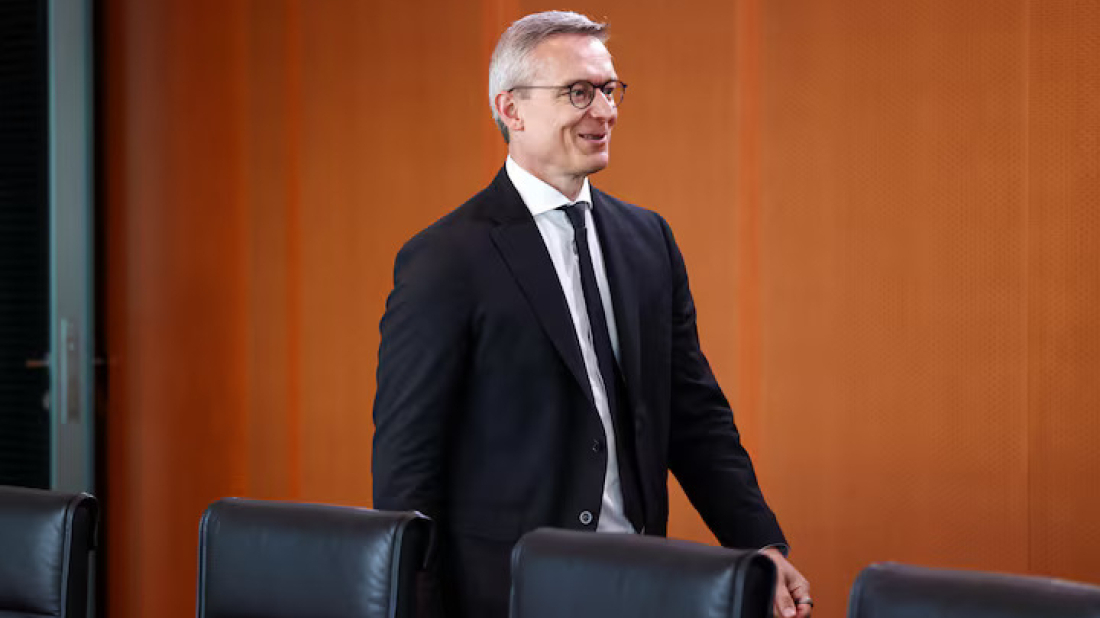Storm Goretti blacks out homes and disrupts travel across northern Europe
Storm Goretti has brought gale-force winds, heavy snow and freezing temperatures to parts of northern Europe, causing widespread power outages, flight...

Europe must strengthen its own digital infrastructure to lessen reliance on U.S. providers, though this should not mean cutting ties with them entirely, Germany’s Digital Minister Karsten Wildberger told Reuters.
Some Europeans, unsettled by U.S. President Donald Trump’s trade policies aimed at advancing American interests, have begun exploring alternatives to the digital ecosystem long dominated by U.S. technology giants.
To achieve true digital sovereignty, Germany and the European Union must “actively participate in this sector as players,” rather than merely acting as customers, Wildberger said in an interview this week.
“There is an enormous growth market for technology, innovation, software, data and artificial intelligence,” he noted, highlighting European firms such as Mistral AI, DeepL and Aleph Alpha as examples of global success stories.
However, Wildberger acknowledged that U.S. companies remain significantly ahead in key areas like artificial intelligence, meaning they will continue to be important partners as Germany develops its own business models.
“Digital sovereignty does not mean protectionism. We want to, and must, remain open to the global market,” he said.
Addressing concerns that President Trump might abruptly curtail transatlantic cooperation, Wildberger added that “U.S. companies naturally remain keen to conduct business overseas.”
Nonetheless, he stressed that German firms must be able to choose between different options — such as where their data is stored and who operates the underlying infrastructure.
Achieving digital sovereignty, he added, also requires rethinking a complex and lengthy supply chain that spans everything from rare earth materials and chip design to servers and fibre-optic cables.
Snow and ice stalled travellers in northwest Europe on Wednesday, forcing around a thousand to spend the night in Amsterdam's Schiphol airport but delighting others who set out to explore a snow-blanketed Paris on sledges and skis.
U.S. President Donald Trump has warned that Iran could face a strong response from the United States if its authorities kill protesters amid ongoing unrest.
Iran is now facing a near‑total internet blackout as anti-government protests sweep the country. Major cities including Tehran have seen connectivity drop sharply, leaving millions of residents isolated from online communication.
New York City parents could soon have access to free childcare for two-year-old children following a joint announcement made by Mayor Zohran Mamdani and Governor Kathy Hochul on Thursday (8 January).
Tens of thousands of Iranians have taken to the streets in Tehran and across at least 28 cities in a wave of anti-government demonstrations, now entering their twelfth day.
A South Korean court hearing the case of former President Yoon Suk Yeol on charges of insurrection postponed the sentencing request until next week after a lengthy session. This case could potentially lead to a death penalty verdict for Yoon due to his failed attempt to impose martial law in 2024.
The United Nations has described footage of the fatal ICE shooting in Minneapolis as deeply disturbing, urging a thorough investigation and reaffirming the right to peaceful protest.
Italy aims to begin testing a delayed cable car project in January as it seeks to ease transport pressure at the Milan–Cortina 2026 Winter Olympics, despite the challenges of construction in mountainous terrain.
Storm Goretti has brought gale-force winds, heavy snow and freezing temperatures to parts of northern Europe, causing widespread power outages, flight cancellations and major transport disruption.
Minnesota officials have launched their own investigation into the fatal shooting of a woman by a U.S. Immigration and Customs Enforcement (ICE) officer, as protests spread across several U.S. cities and tensions grow between state and federal authorities.
You can download the AnewZ application from Play Store and the App Store.

What is your opinion on this topic?
Leave the first comment